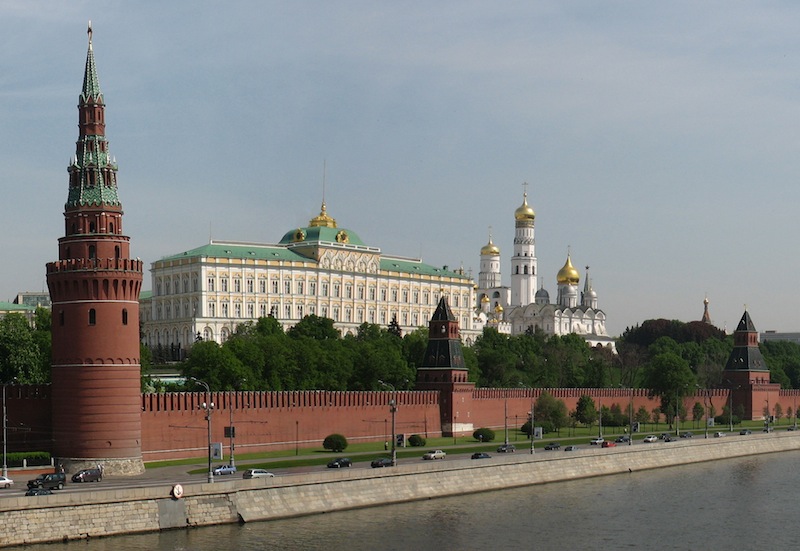After the session, Marko Mihkelson, the committee chair, stated that Estonia should be better prepared to deal with the ‘informational' aspects of Russia's foreign tactics, which are known to be on the increase – information operations that are meant for the consumption of Europe's older members states.
Observers indicate that Moscow has been concerned about the fallout from the “Arab spring' and the extent to which Twitter can mobilize attitudes and mass action. This has motivated a pro-active stance in the Kremlin, which in turn translates into a ‘a best defensive is offense' mind-set. The leadership knows well that Russia's image is not one about which they can boast, therefore a more radical approach is necessary in attempts to improve it.
At the outset Russia must overcome some formidable obstacles. The ‘peace festivals' of the Soviet era, with slogans such as ‘for anti-imperialist solidarity, for peace and friendship' aimed particularly at the youth have long lost their cachet, even though Russia is perceived as somewhat of a bulwark against western decadence and cultural dominance. But the modern antipathy toward the USA amongst third-world countries does not necessarily mean a welcome mat for Russia. With a hardening of its policy towards domestic political opposition, the Kremlin is seen as reactionary, not progressive.
‘Soft power' as coined in 1990 by its founder, political scientist Joseph Nye, means the ability of one country to influence other countries and peoples through its values and culture. These aspects must have sufficient allure to attract other nations.
The Russian version of soft power emphasizes the active application of facilitators that are an alternative to classical diplomatic activity and technology by using its citizens' organizations, communication techniques and humanitarian endeavours. In other words the reduction of diplomatic testosterone in the use of operational programs, especially the use of Twitter's potential and the vast Russian diaspora abroad.
An established government agency, Rossotrudnisestvo, has now been assigned to coordinate the wielding of the soft power policy internationally. It reports directly to the foreign ministry and has managed the relationship with Russians living abroad and humanitarian cooperation. It's obvious to most that soft power in the eyes of the Kremlin is still seen as a form of propaganda, albeit modern and perhaps not quite so aggressive as before, but still assertive.
Chatham House's scholars Alenxander Bogomolov and Oleksandr Lytvynenko, have studied Russia's soft power tactics in Ukraine. They conclude that: a) For Russia, holding a short leash on Ukraine is an imperial imperative. Ukraine is seen as a part of Russia's own identity. b) Russia's socio-economic image is not attractive for Ukraine. Therefore national myths such as a ‘common future' is used for a public narrative. c) These narratives are used through the Russian Orthodox Church, the mass media, business networks, citizens' organizations. d) Russia encourages public discourse on language policy, shared cultural and historical legacies.
Nye recently reminded us that soft power of a state is based on the effectiveness of three resources: its culture, if it's attractive to others; its political values, if it lives up to them at home and abroad; and its foreign policies, if they are deemed legitimate and own moral authority.
Nye indicates that Vladimir Putin, on the other hand, has told Russian diplomats to shift over to the use of soft power by strengthening the use of the Russian language. But Russian scholar, Sergei Karaganov insists that Russia must use hard power, as in the attack against Georgia, because “it has little soft power – that is social, cultural, political and economic attractiveness”.
In contrast, USA's soft power is not controlled by the government, but rather it's produced by civil society. It includes universities and foundations, and Hollywood and hip hop. Non-governmental soft power even leaves a residue of influence, in spite of actions such as the invasion of Iraq that may be condemned by many nations.
Soft power enhancers like the Beijing Olympics, the Shanghai Expo have lost their potency. Russia's upcoming Sochi Olympics similarly cannot sustain its potential. The continual repression of dissent, the persecution of a peaceful political opposition negates any gain from possible soft power boosters.
Espousers of soft power must understand that it flows from individuals, the private sector and civil society. The government cannot be its main instrument. Government efforts in propaganda lack credibility. Nye emphasizes that words and deeds must match with policies. Self criticism is a soft power asset and these notions aren't part of Russia's ideology. For the international community the Soviet tradition has been exhausted even though Putin takes his cues from the repressive past. For Moscow real soft power is still elusive.
Laas Leivat




